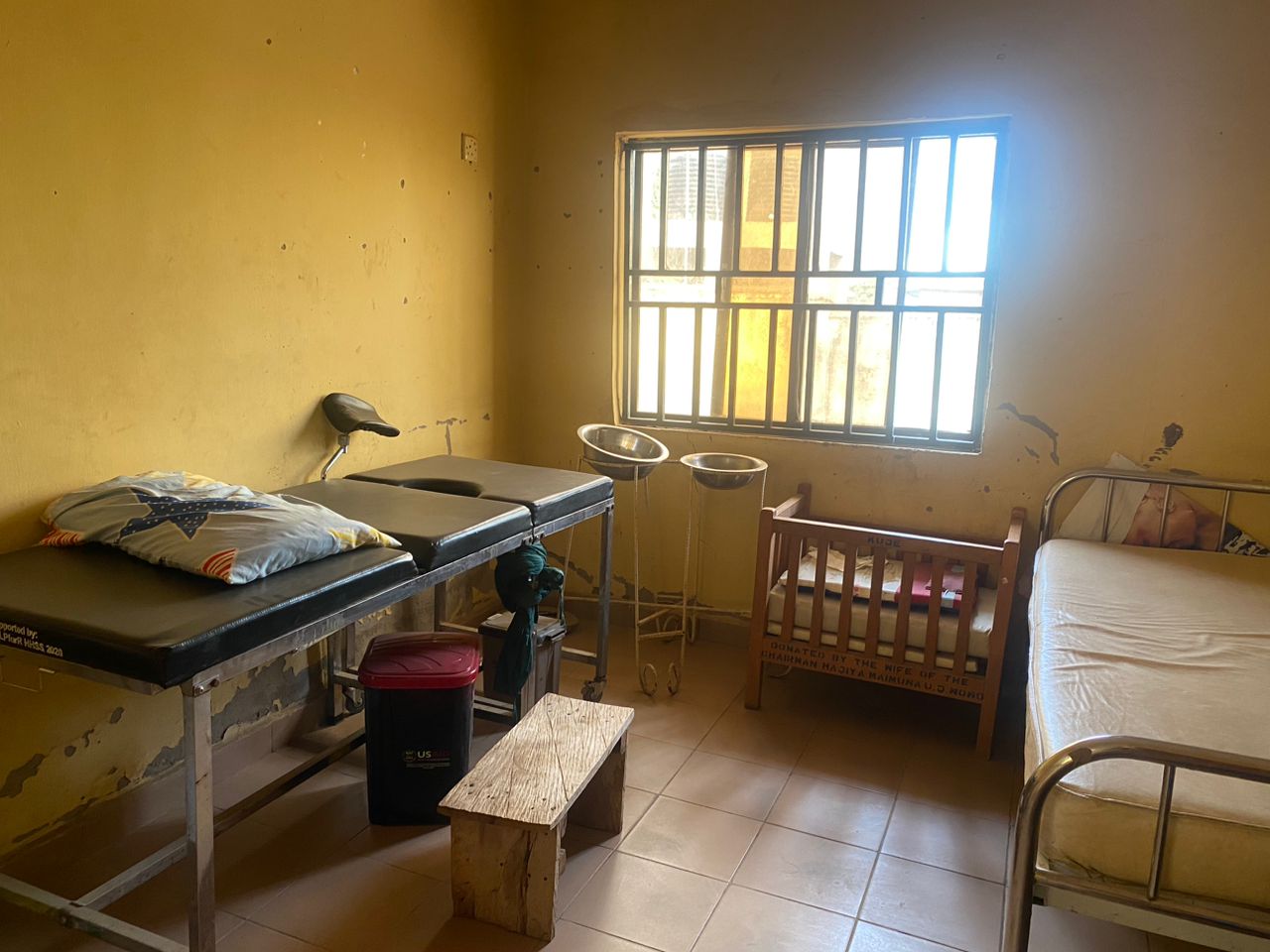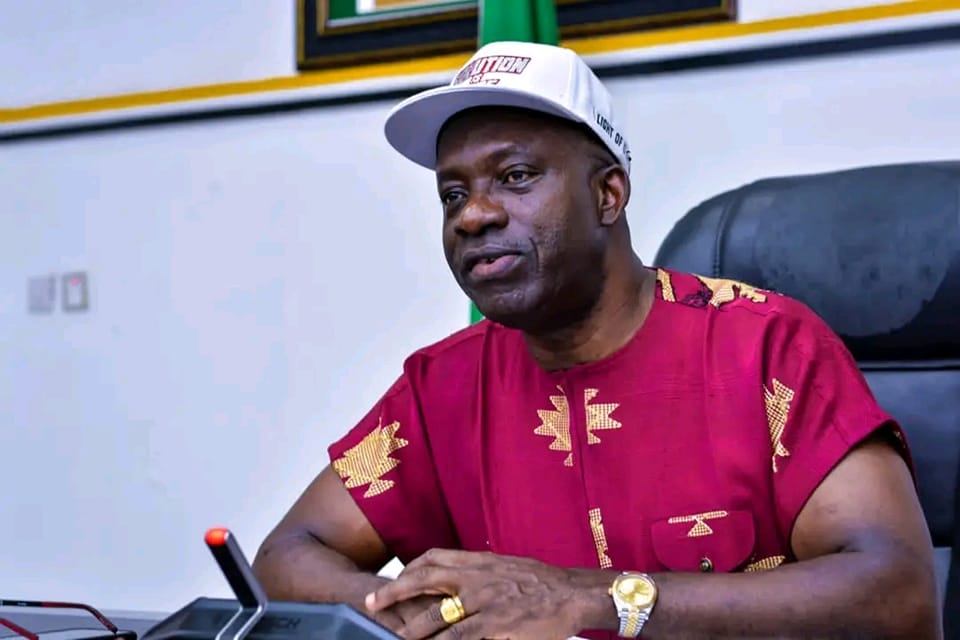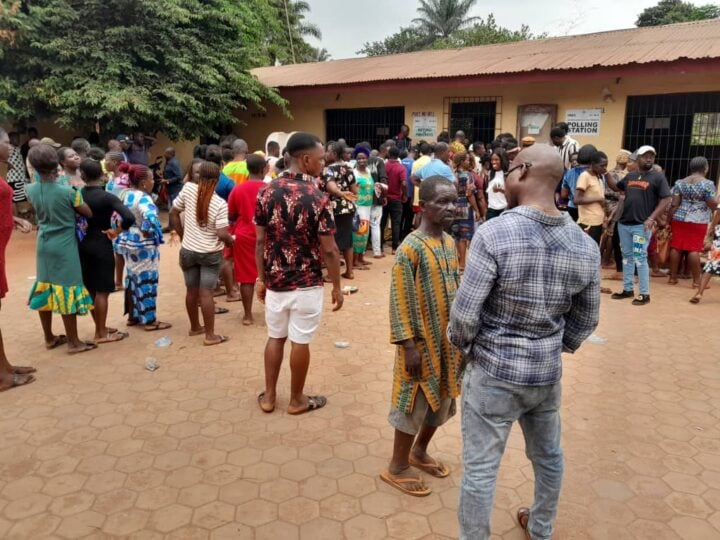Kuchiyako PHC ward
BY AISHAT ABIOLA
Nigeria, a nation marked by diverse landscapes and cultural richness, grapples with significant healthcare disparities between urban and rural areas. While urban centres face issues such as minimal medical resources, a lack of healthcare workers and a lack of necessary equipment, they still provide decent healthcare services, unlike rural communities which face numerous challenges that hinder their access to essential healthcare services.
Rural communities in Nigeria encounter formidable barriers regularly when it comes to accessing healthcare services. One of the primary challenges is the shortage of healthcare facilities and trained medical professionals in remote areas.
According to a report by the World Health Organization (WHO), there is a significant urban-rural divide in the distribution of healthcare resources in Nigeria, with the majority concentrated in urban centres.
Advertisement
Challenges in Rural Healthcare Access
Geographic Barriers: One of the primary obstacles to healthcare access in rural areas is the geographic isolation of these communities. Many rural regions in Nigeria are far from urban centres, making it difficult for residents to reach healthcare facilities promptly. Long distances, poor road conditions, and a lack of reliable transportation options have contributed to delays or altogether neglected healthcare-seeking behaviours.
Shortage of Healthcare Facilities and Personnel: Rural areas frequently deal with a shortage of healthcare facilities and trained medical professionals. Nigeria has a disproportionately low number of healthcare facilities in rural areas compared to urban centres. This shortage not only limits the availability of essential services but also results in prolonged waiting times for medical attention.
Advertisement
Financial Constraints: Economic factors also play a significant role in healthcare access, especially in rural communities where poverty rates tend to be higher. The majority of rural residents often struggle to afford healthcare services, medications, and transportation costs to reach medical facilities. Out-of-pocket expenses associated with healthcare often deter individuals from seeking timely medical attention, exacerbating health problems and perpetuating a cycle of poverty.
Healthcare Infrastructure Disparities: The disparity in healthcare infrastructure between urban and rural areas is stark. Urban centres have significantly better hospitals and clinics, while many rural healthcare facilities are plagued by dilapidation and a lack of essential medical equipment. The Nigerian government’s National Health Facilities Registry highlights the uneven distribution of healthcare infrastructure, with urban areas having a higher concentration of better-equipped facilities.
Lack of Skilled Personnel: In addition to inadequate facilities, rural areas face a shortage of skilled healthcare professionals. The WHO reports that the distribution of healthcare workers in Nigeria is highly skewed as urban areas have a more significant concentration of doctors, nurses, and other healthcare providers. This scarcity of skilled personnel in rural regions further diminishes the quality of healthcare services available to residents.
Power Challenges: Another critical aspect of healthcare infrastructure often overlooked is the lack of reliable electricity in rural regions. Many healthcare facilities in remote areas struggle with power shortages which hinder the functionality of medical equipment and limit the provision of essential healthcare services. Electrification rates in rural areas are considerably lower than in urban centres, exacerbating the healthcare infrastructure divide.
Advertisement
Proposed Solutions
Investment in Rural Healthcare Infrastructure: Increasing investments in rural healthcare facilities is imperative to address healthcare infrastructure disparities. Building new, well-equipped healthcare centres and upgrading existing ones will improve the availability and quality of healthcare services in remote regions. The Nigerian government, in collaboration with international partners, can allocate funds specifically for rural healthcare infrastructure development.
Training and Deployment of Healthcare Professionals: Addressing the shortage of healthcare professionals in rural areas requires a comprehensive strategy. Government initiatives and incentives should be implemented to encourage medical professionals to work in underserved communities. Investing in the education and training of local community health workers can also enhance primary healthcare services in rural areas and provide a sustainable solution to the shortage of skilled personnel.
Improving Transportation Infrastructure: Efforts to improve healthcare access should also focus on transportation infrastructure. Constructing and maintaining reliable roads in rural areas, as well as implementing affordable and accessible public transportation options, can significantly reduce travel barriers for rural residents seeking medical attention.
Advertisement
Financial Support and Health Insurance: The government can establish and promote health insurance programs targeted at low-income individuals in rural areas. These programs can provide financial relief and encourage healthcare utilization by covering medical expenses. Additionally, subsidies for essential medications and preventive healthcare measures can contribute to a healthier rural population.
Alternative Energy Solutions: Implementing alternative energy solutions such as solar power is crucial to provide a solution to address power challenges in rural healthcare facilities. The integration of sustainable energy sources can ensure a reliable electricity supply, enabling the consistent operation of medical equipment and improving the overall quality of healthcare services in rural areas.
Advertisement
Last line
Nigeria’s urban-rural disparities in healthcare accessibility and infrastructure can only be resolved when there is a concerted effort from the government, healthcare organizations, and the international community. By acknowledging the challenges faced by rural communities and implementing comprehensive, sustainable solutions, Nigeria can pave the way for a more equitable healthcare system.
Advertisement
Bridging these gaps is not just a matter of social justice but a strategic investment in the nation’s health and development. When stakeholders work collaboratively, the possibility of attaining accessible, quality healthcare for all Nigerians, regardless of their geographic location, can become a reality.
Aishat M. Abisola, an NYSC member with PRNigeria in Abuja, can be reached via [email protected]
Advertisement
Views expressed by contributors are strictly personal and not of TheCable.
Add a comment






